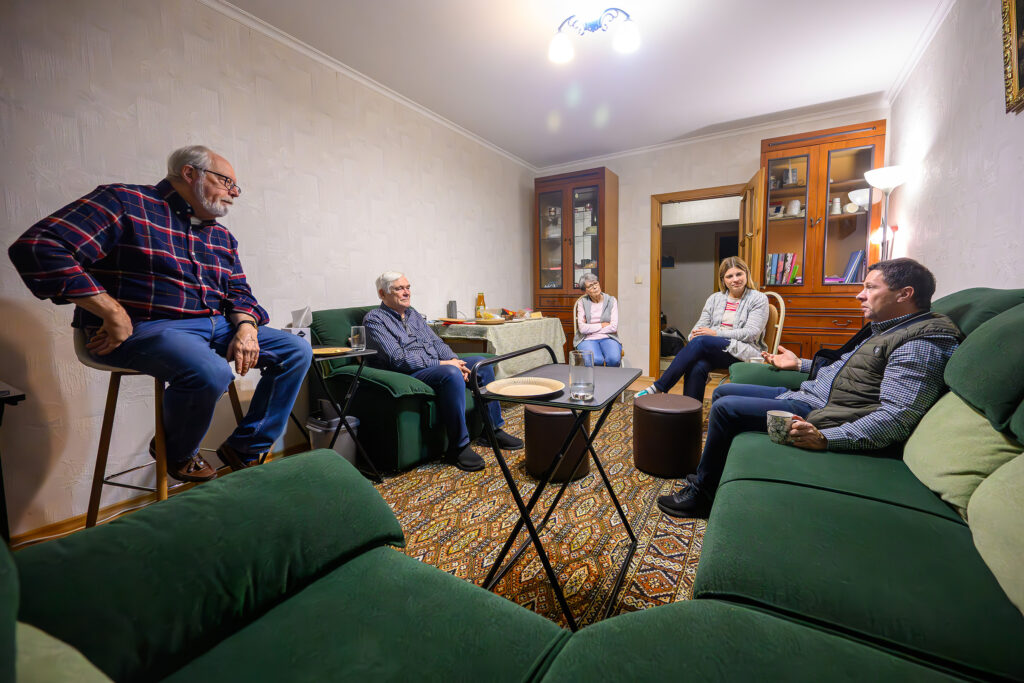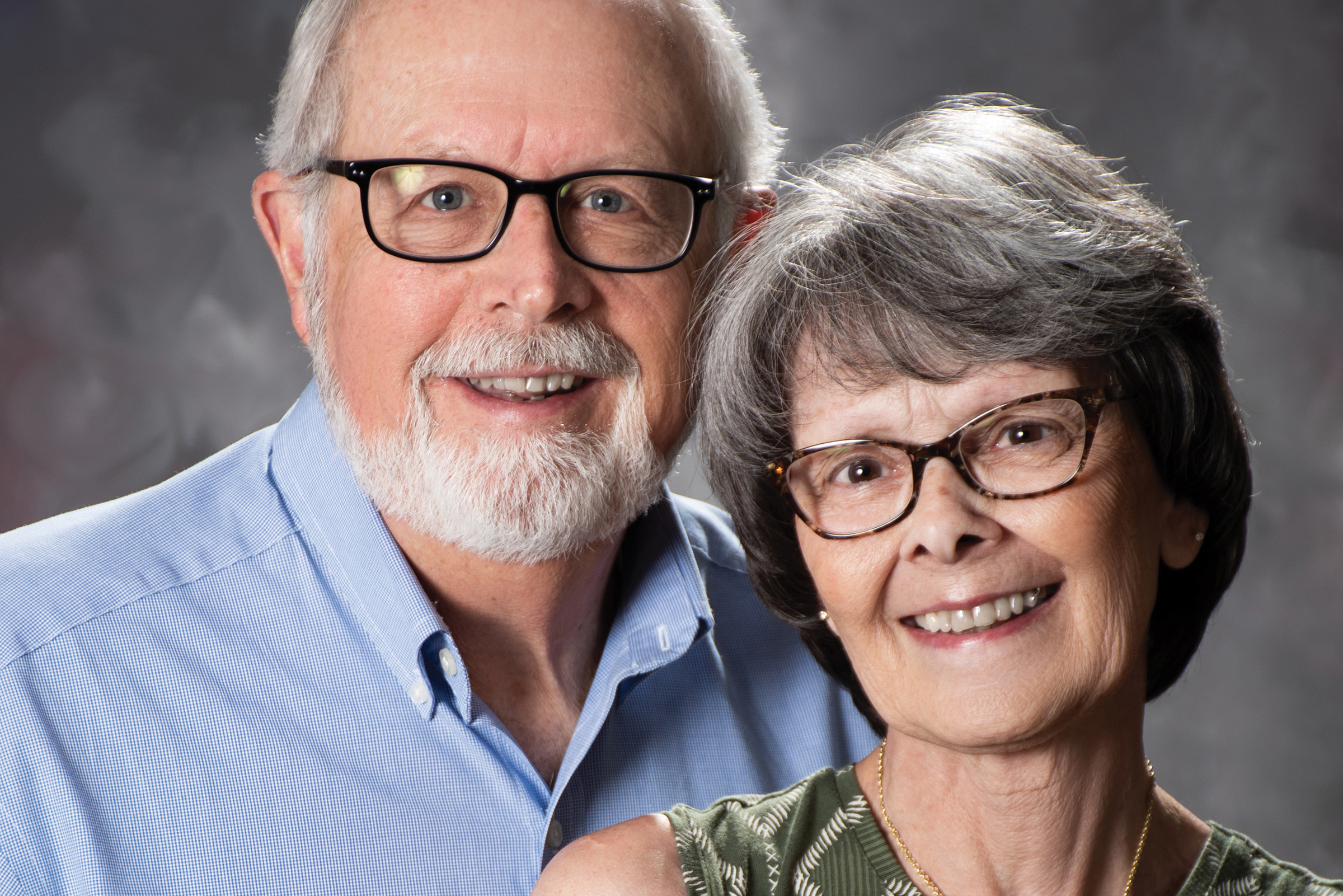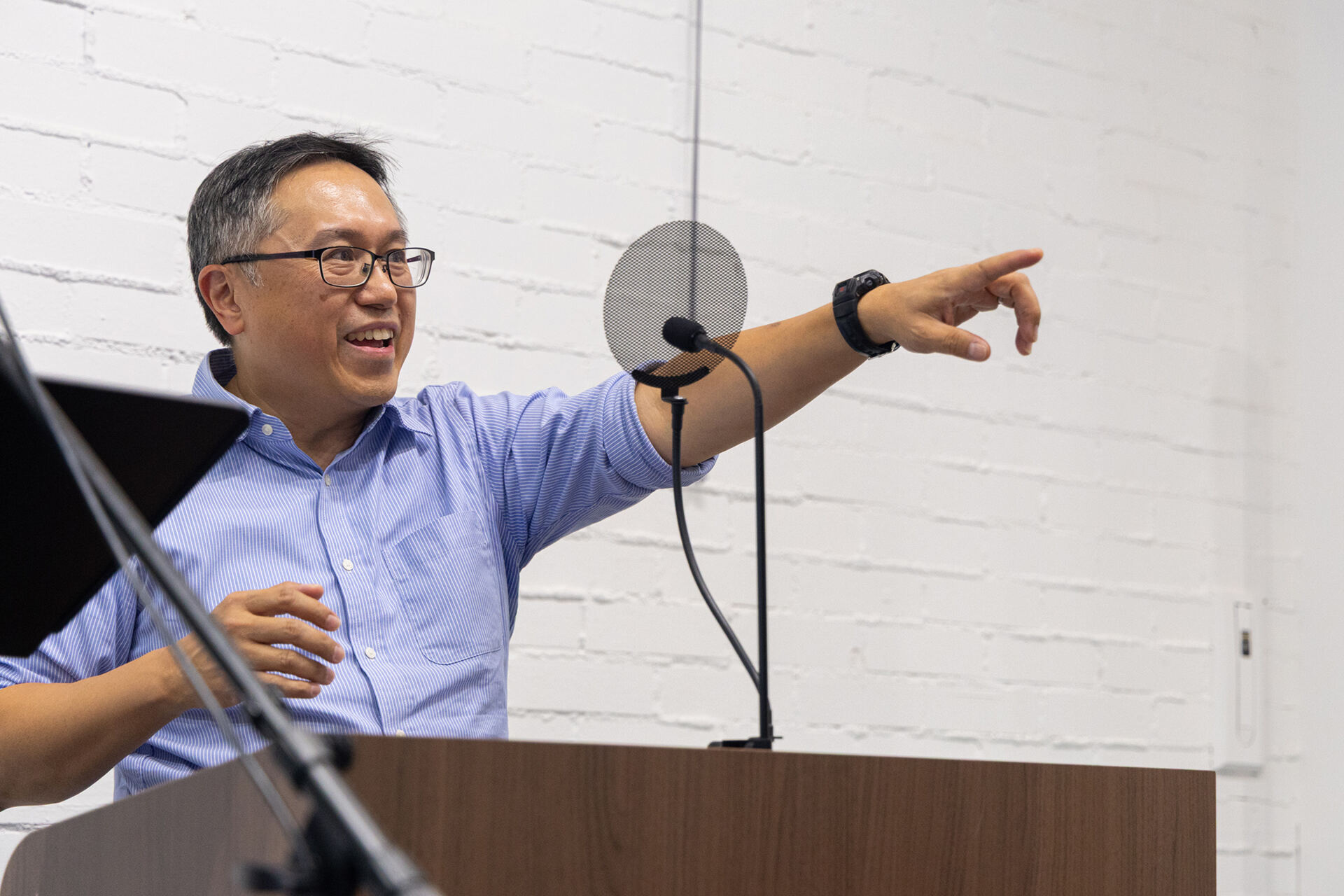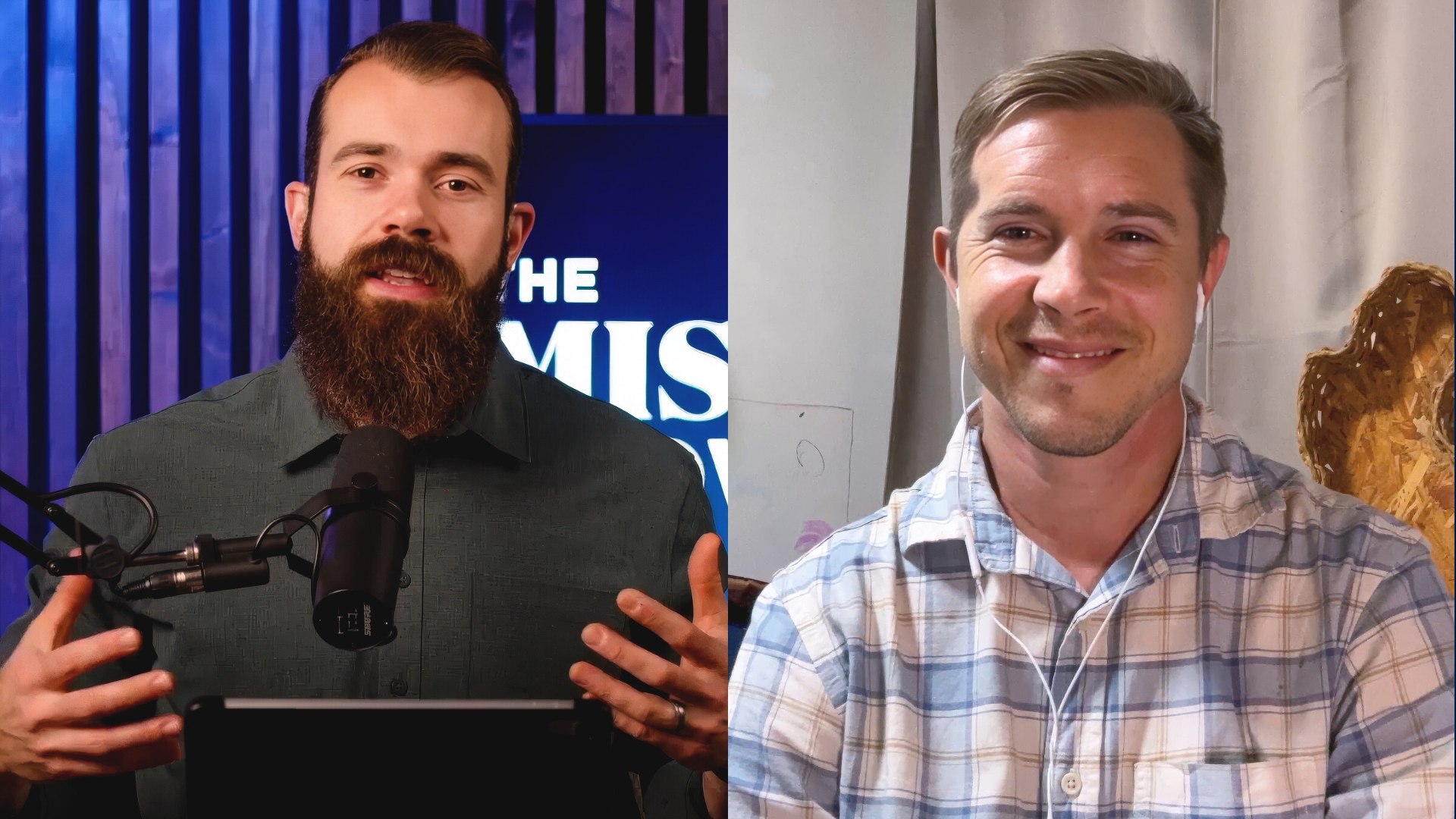For more than 50 years, Rich and Jo Ann Davis have trained church planters around the world, multiplying their ministry throughout countless churches, villages, and regions.
Their initial commitment to serve one year in Lima, Peru, extended to 33 years of planting churches and establishing a seminary and school in Peru before the Lord redirected their focus, leading them to train leaders as residential missionaries in India, St. Thomas, and currently Moldova—where their faithful ministry continues.
How did your journey to missions begin?
We grew up in Palo Alto, California. We met in high school in 1962 and married in 1966. Jo Ann is Portuguese, and her family culture included a commitment to Roman Catholicism. Rich came from a non-religious family and claimed to be an atheist. Soon after our marriage, we decided to experiment with the hippy culture, but it failed to answer the big questions in our hearts. Through the faithful witness of a work colleague, Rich heard the gospel and trusted Christ as his Savior. Within months, the Lord made it clear that our life’s purpose should be to serve him as missionaries, and we left California to enter Bible college in Colorado.
We were invited to join a group of students in a short-term ministry with ABWE in Peru, where the Lord gave us a great love for the people, culture, and missionaries. In 1973, the ABWE Board appointed us to Peru.
You’ve served in several different cultural contexts. How have you seen God use your experience in regions where you lived previously to prepare you for ministry in others?
When we began ministry in Peru, we made many mistakes. For example, I (Rich) taught in so many Bible studies that it took me two weeks to get to each one. One man made a profession of faith one week, but when I returned to the group two weeks later, I learned that he had gotten drunk and abused his wife. People were not becoming good disciples automatically! I learned that discipleship and church planting require great concentration and dedication.
After 33 years in Peru, we moved to India to train church planters. We found that the national brethren in India respected our background, giving us creditability to teach. We trained 30 Indian believers for a year, resulting in 20 churches planted in surrounding villages. Later, when we were asked to become the executive director for Central America and the Caribbean, we were told that we could apply our experience in India to encourage ABWE teams to mentor national leaders in church planting. The Lord blessed the team in Nicaragua to develop the Institute of Church Planting (ICP), and today, we rejoice that Nicaraguan believers have planted more than 100 churches.
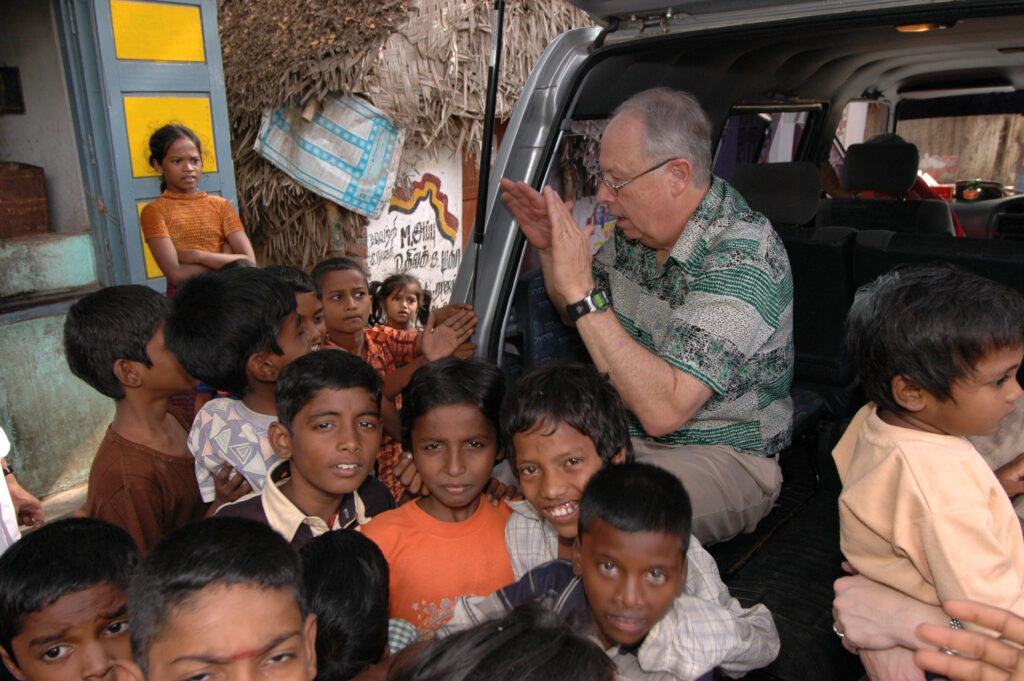
Another unique factor is that we became missionaries with limited training. When the Lord called us to a new ministry, we had to invest in additional preparation. Before starting a K-12 English immersion school in Lima, Rich completed a master’s degree to learn how to administrate a Christian school. Likewise, when he became president of a Bible college in St. Thomas, he entered a doctoral program in Christian higher education administration. This academic training and practical experience continued to build, giving us more skills that might be used in new locations and culminating in an open door in Moldova to teach at a Christian university and start the Institute of Church Planting.
Much of your career has involved training national leadership. How have you seen God use this approach?
The Great Commission commands us to make disciples in all nations, which is inherently a process of multiplication. Once a Christian has discipled a person to the point that he or she is capable of discipling another, you then have two disciples making two more disciples—and the process continues. We apply the same concept to training national leaders. By sharing our knowledge and skills with national leadership, we multiply what can be accomplished for the Lord. Currently in Moldova, we are training about 25 leaders who are planting a total of 12 churches in villages without a gospel testimony, which is far beyond anything we could do alone.
At several points in your career, your ministry has involved relief work: starting compassion ministries when earthquakes destroyed churches in Peru, serving in India after the tsunami, and working with Ukrainian refugees in Moldova. How do you integrate mercy ministry with church planting?
Jesus had compassion for the poor, teaching, feeding, and healing them. Compassion ministries go hand in hand with gospel ministry because they show people that you care about their felt needs, which often prepares them to consider their spiritual needs. For example, in a village in India, we began by serving Hindus without conditions. Our example was our Christian testimony. Eventually, the village chief asked us why we were doing this. He told us that had the situation been reversed, they would never have done these things for us. We explained that we served because of the love of Christ. The chief then gave us land in the center of the village with permission to build a community center, offer vocational training, and teach the Bible!
Our outreach to Ukrainian refugees has seen some people trust Christ and join a church. They realized that we would help them even if they resisted our spiritual overtures. Our compassion ministry was not contingent on their spiritual condition or response to the gospel.
You’ve served in ministry for 50 years, which is a huge accomplishment. How have you been sustained to continue serving?
Like every missionary family, we have had good times and difficult times that taught us to trust the Lord more. One of the most amazing experiences happened in Lima when we did not want to start another church due to the difficulty of raising funds for the land and building. Even so, the Lord encouraged us to start the church with a team of Peruvian believers. We rented a large house, and within a year, we reached our capacity with over 130 people attending the services. We prepared to raise funds in the US, but before we even started, a young couple gave us over a million dollars to purchase a school that had gone bankrupt! I imagined the Lord sitting on his throne, laughing and saying, “So, you didn’t want to start a church because of raising money?” Every experience gives us greater faith and courage to attempt great things for God as long as we know that he is leading.
